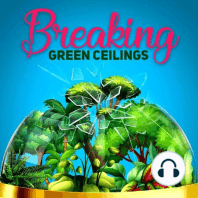43 min listen
EP 61: Bringing Water Equity to America
ratings:
Length:
51 minutes
Released:
Oct 4, 2022
Format:
Podcast episode
Description
Dr. Sri has a really interesting story about how he found himself on a path into environmental conservation and eventually water equity after starting as a construction engineer. When I reached out to Sri he was the leader of the water program at the Environmental Policy Innovation Center. Since then, he took a new and exciting opportunity at the Environmental Consulting & Technology, Inc., as the Director of Water Equity and Climate Resilience. Over the past several years, Sri’s work has addressed national water issues such as affordability, aging water infrastructure, extreme weather impacts, financing, and non-point source pollution. In this episode, Dr. Sri talks about water equity challenges in the United States.Episode HighlightsIn the US, we have almost two million people who do not have access to clean drinking water and indoor plumbing services. The majority of them are indigenous communities and communities of color. In its simplest form, water equity means that everyone has access to safe, reliable, and affordable water services. But sometimes, what is safe and reliable is not affordable, or what is reliable and affordable is not safe. There are many forms of water inequity in the US - accidents, contamination with water pollutants, too expensive water for low-income community, or mistrust toward the public service. Inequities in communities of color include housing issues, capitalistic ways of doing things, some version of private industry, or lobbying. We try to work with EPA because certain things have to be done at the federal level. Water infrastructure investments. Smaller systems are more resource restricted, but they are also in most need of these funds. Six million people in the country do not drink tap water. In many cases these are unjustified fears of mistrust. There are certain uses for bottle water. But making that a predominant way of consumption is problematic because there is huge difference in the pricing of bottle water per unit of volume compared to tap water. Contact information and other Resources:Dr. Sridhar Vedachalam leads the water program at the Environmental Policy Innovation Center. His work has addressed national water issues such as affordability, aging infrastructure, extreme weather impacts, financing, and non-point source pollution. He currently serves on the advisory board for Water Hub and is a member of the Source Water Initiative led by the Great Lakes Commission and the Water Equity Task Force led by Virginia Health Catalyst. Dr. Vedachalam is also the Editor for Urban Water at the Global Water Forum, a resource for evidence-based, accessible, and open-access articles on freshwater governance. He brings water policy experience from his years in academia, government, and the non-profit sector. He holds a Ph.D. from The Ohio State University.Breaking Green Ceilings:Website: https://www.breakinggreenceilings.com/Instagram: https://www.instagram.com/breaking_green_ceilings/Follow Dr. Sri Vedachlam: Twitter: https://mobile.twitter.com/drvedachalamLinkedIn: https://www.linkedin.com/in/srivedachalam/
Released:
Oct 4, 2022
Format:
Podcast episode
Titles in the series (63)
EP 12: Getting People to Care About the Environment by Breaking Green Ceilings
